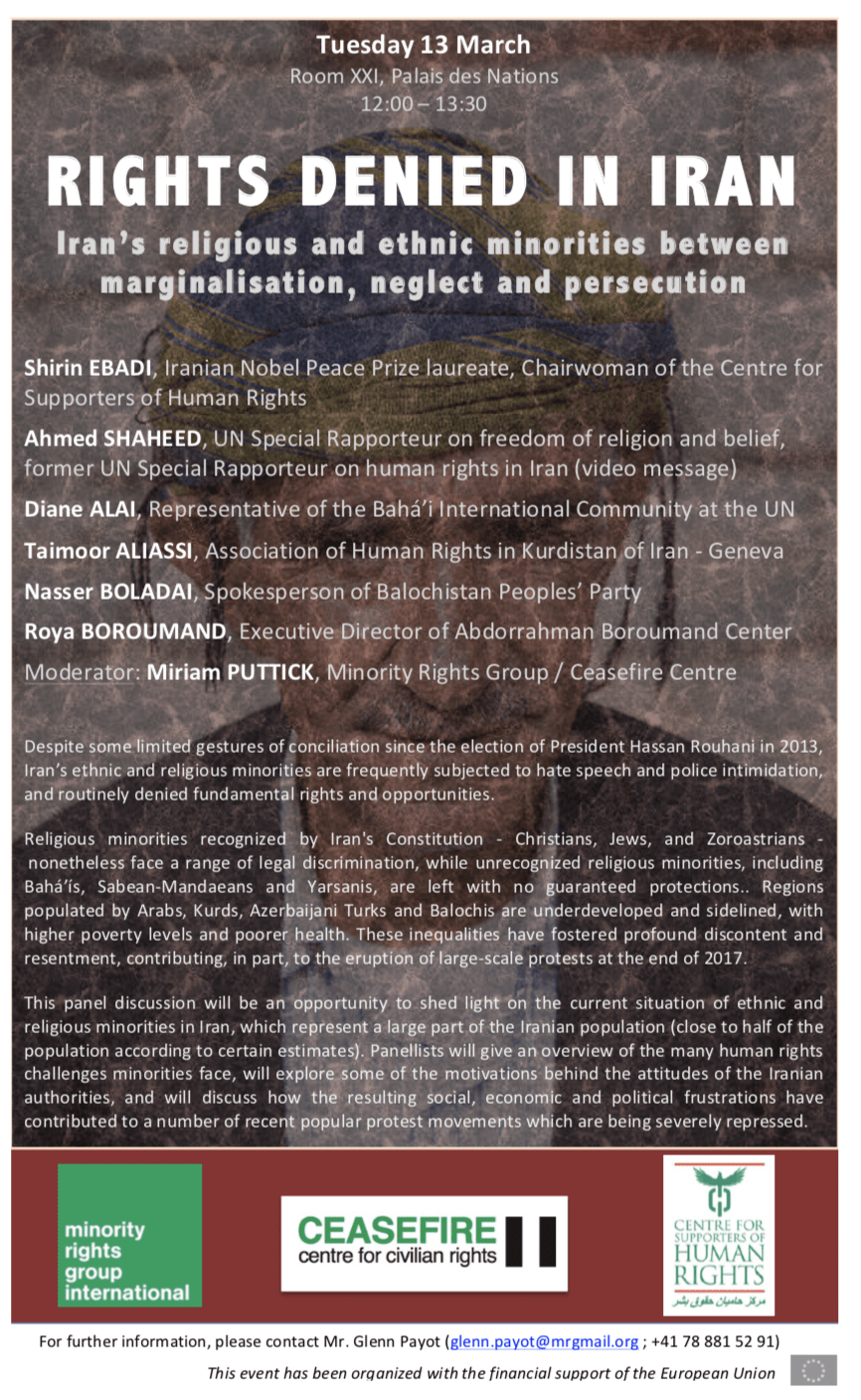
HRC37 – MRG, Ceasefire and CSHR hold a side event on the situation of Iran’s religious and ethnic minorities
Minority Rights Group (MRG), the Ceasefire Center for Civilian Rights and the Center for Supporters of Human Rights held a panel discussion on Iran’s religious and ethnic minorities between marginalization, neglect and persecution, in the margins of the UN Human Rights Council in Geneva, on Tuesday 13 March 2018, from 12:00 to 13:30.
This event was an opportunity to launch our joint report “Rights Denied: Violations against ethnic and religious minorities in Iran” (March 2018).
PANELISTS:
Shirin EBADI, Iranian Nobel Peace Prize laureate, Chairwoman of the Centre for Supporters of Human Rights
Ahmed SHAHEED, UN Special Rapporteur on freedom of religion and belief, former UN Special Rapporteur on human rights in Iran (video message)
Diane ALAI, Representative of the Bahá’i International Community at the UN
Taimoor ALIASSI, Association of Human Rights in Kurdistan of Iran – Geneva
Nasser BOLADAI, Spokesperson of Balochistan Peoples’ Party
Roya BOROUMAND, Executive Director of Abdorrahman Boroumand Center
Moderator: Miriam PUTTICK, Minority Rights Group / Ceasefire Centre
BACKGROUND:
Despite some limited gestures of conciliation since the election of President Hassan Rouhani in 2013, Iran’s ethnic and religious minorities are frequently subjected to hate speech and police intimidation, and routinely denied fundamental rights and opportunities.
Religious minorities recognized by Iran’s Constitution – Christians, Jews, and Zoroastrians – nonetheless face a range of legal discrimination, while unrecognized religious minorities, including Bahá’ís, Sabean-Mandaeans and Yarsanis, are left with no guaranteed protections.. Regions populated by Arabs, Kurds, Azerbaijani Turks and Balochis are underdeveloped and sidelined, with higher poverty levels and poorer health. These inequalities have fostered profound discontent and resentment, contributing, in part, to the eruption of large-scale protests at the end of 2017.
This panel discussion will be an opportunity to shed light on the current situation of ethnic and religious minorities in Iran, which represent a large part of the Iranian population (close to half of the population according to certain estimates). Panellists will give an overview of the many human rights challenges minorities face, will explore some of the motivations behind the attitudes of the Iranian authorities, and will discuss how the resulting social, economic and political frustrations have contributed to a number of recent popular protest movements which are being severely repressed